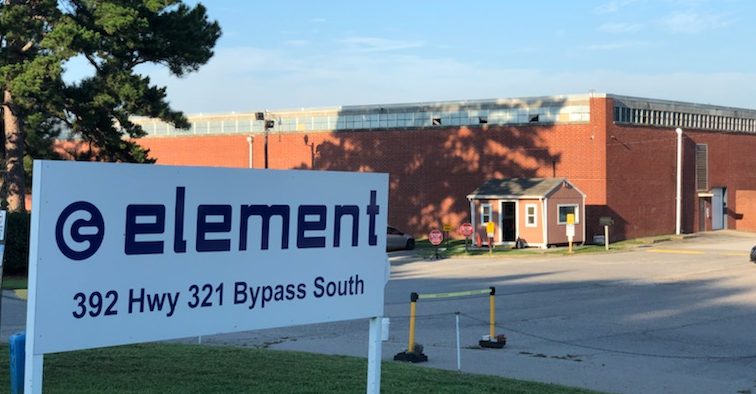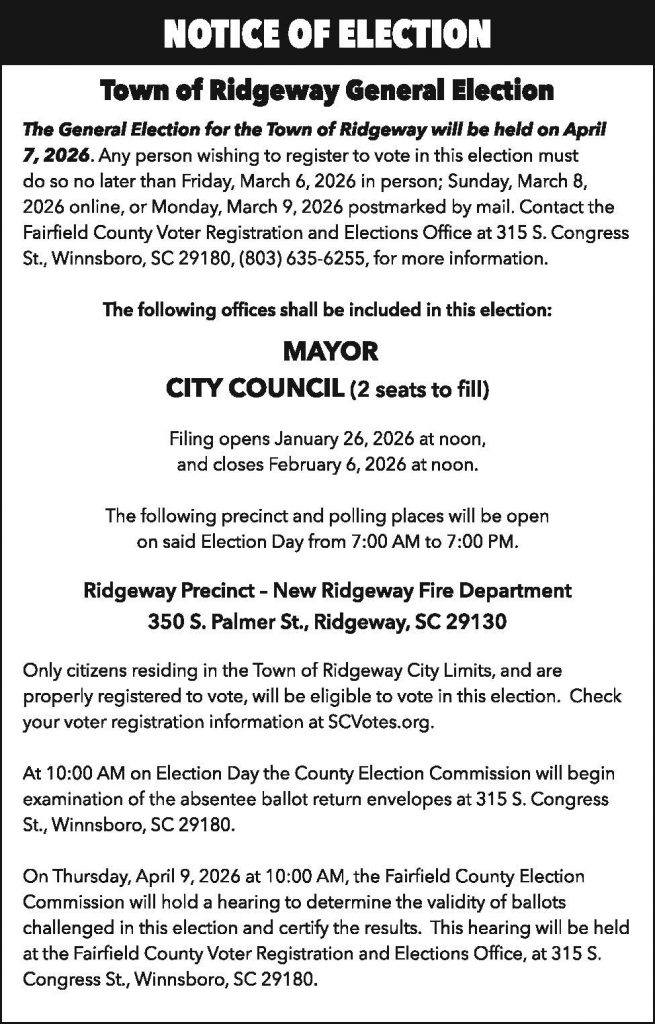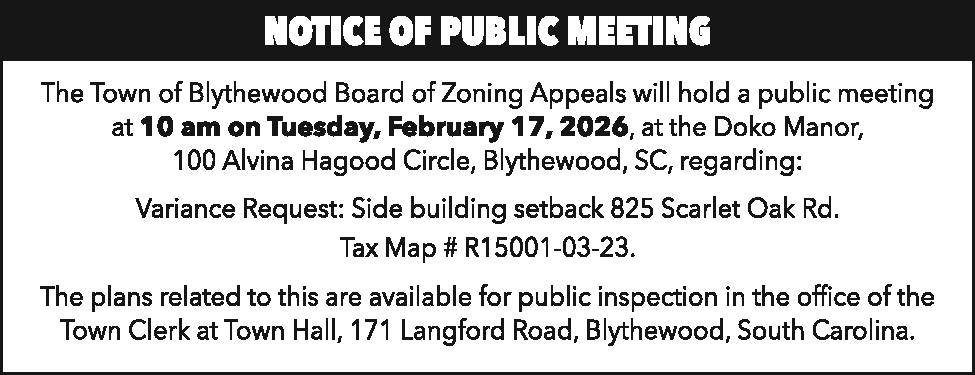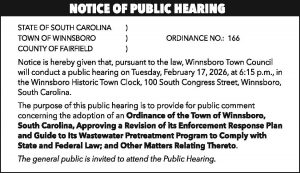Smith: It’s crazy… a 25% tariff on the only TV assembler in the United States. County pressing for tariff exemption

First layoffs for Element Electronics will be Oct. 5. | Callie Sims
WINNSBORO – Just months after Element Electronics sought the county government’s help to begin looking to expand its footprint and potentially increase employment and tax revenue in the county, the company announced this week that it will be closing.
In a letter issued to employees on Monday, Element’s Vice President of Human Resources, Carl Kennedy, announced that the company would be laying off most of its employees and closing its facility located at 392 Hwy 321 South in Winnsboro.
“We hope the closure will be temporary and that we will be able to re-open in three to six months,” Kennedy said in the letter. “But we cannot predict this with any certainty at this time.”
Kennedy said the closing would begin on Oct. 5, when most of the plant’s 134 permanent, full time employees will be laid off. Smaller groups of employees will be separated on a rolling basis from then until the end of the year, Kennedy said. A skeleton crew of approximately eight employees will remain at the facility, according to Kennedy.
In a separate letter to employees, Mike O’Shaughnessy, Manager of Element, put a finer point on the situation.
“Our closure is entirely due to ongoing and increasingly difficult tariff related matters,” O’Shaughnessy wrote. “Element, the only U.S. based television assembler, will soon be subject to duties on our parts far in excess of those of any foreign importer.”
O’Shaughnessy said the tariffs would make it impossible for Element to continue its U.S. production. He said the duty inversions would cause Element’s factory to pay more in duty on its parts than foreign companies would pay on TVs built and exported from Mexico into the United States.
Fairfield County Council Chairman Billy Smith said officials in the county and Winnsboro were contacted on Tuesday by several national news outlets about the closure. Smith spoke with CNBC Tuesday afternoon. He said he took that opportunity to press for the components imported for Element to be exempt from the tariff.
“Our goal at this point,” Smith said, “is to bring attention, from the state and local level, to hopefully get the parts used by Element exempted from the tariff. It’s crazy that, first, a new 10 percent tariff and now the threat of a 25 percent tariff is effecting the only television assembler in the United States, while companies that build and import complete televisions from Mexico and other countries are facing zero increase in tariffs,” Smith said. “These companies contribute nothing to employment in the United States. Element has 134 employees and wants to expand.”
“This is especially hard to swallow when, just a few months ago we [the county] were assisting Element in finding a suitable building to expand its footprint and potentially grow its employee base more than two-fold. That was after the Administration signaled the new tariffs were going to be placed on fully assembled televisions being imported, which would have given Element a leg up on the foreign competition. That isn’t what happened though,” Smith said. “Now this.”
On July 10, the Trump administration announced a new 10 percent tariff on $200 billion of goods produced in China. Those goods, O’Shaughnessy wrote in a letter to employees, included the LCD panels and motherboards that Element uses.
Then, last week, the administration announced that it plans to raise that tariff to 25 percent.
“No tariffs were placed on fully assembled TVs arriving in the US from China or Mexico,” O’Shaunessy said. “This contrast makes it impossible to sustain our U.S. production operations.”
O’Shaughnessy said, however, that Element’s management had not given up the battle to get back the company’s ability to produce Element TVs in the United States.
It was in August, 2013 that Element Electronics, a Minnesota based company, announced its plans to relocate manufacturing operations from China back to the United States, tapping the former Perry Ellis Menswear building in Winnsboro as their new home.
Vlad Kazhdan, vice president of product for Element, said during the announcement that expected the new venture to create 500 new full-time jobs over the next five years.
Purchase and Lease
As part of the agreement, Fairfield County purchased the Perry Ellis building from a Perry Ellis subsidiary for $2 million in a deal that closed on Oct. 14, 2013. But the County only ponied up $600,000 for the property, while the Department of Commerce, through an economic development grant, put up $1.25 million. Element, meanwhile, kicked in the remaining $150,000 for the purchase. An additional $50,000 in DOC grant money went toward the cost of upfitting the building, transforming it from a clothing manufacturing center into a high-tech electronics plant. Fairfield Electric Cooperative and SCANA offered to reimburse Element $100,000 each for upfit costs.
Element leased the property from the County for $1 a year for 30 years with the option to purchase the property for $1 if, by Dec. 31, 2018, it had created at least 500 new, full-time jobs and had invested at least $7.5 million in taxable property; or, if by the same date, Element had created at least 350 jobs, invested at least $5.25 million, repaid a pro rata amount of the grant money and paid to Fairfield County an additional amount based on the following formula:
400-499 jobs by Dec. 31, 2018 = $120,000;
350-399 jobs by Dec. 31, 2018 = $200,000.
Payments were due to the County by June 1, 2019. Element could also continue to lease the property for $1 a year for an additional five years, but must have created at least 250 new, full-time jobs, invested at least $2.5 million by Dec. 31, 2018, and paid to the County $600,000, plus the pro rata grant amount. Failing to have met those conditions, Element could then lease the property at market value, but still must repay the County’s $600,000 investment.
Fee in Lieu of Taxes
Manufacturing property in South Carolina is taxed at 10.5 percent, while commercial and other property is taxed at 6 percent. To level the playing field and help attract industry, Tiffany Harrison, Director of Fairfield Economic Development at the time said, local governments often offer as an incentive fees equivalent to the 6 percent rate that companies may pay instead of taxes. Such an agreement is known as a Fee in Lieu of Taxes, or FILOT. Perry Ellis, however, had no such agreement and their property at 392 Highway 321 Bypass N. was listed on the tax rolls. And once a property is on the books, Harrison said, it cannot be removed. Element, therefore, did not qualify for a FILOT on the property itself, but instead was offered by the County an annual tax credit of 42.8 percent for 30 years to bring their contributions to Fairfield County coffers down to the 6 percent level. Like the lease agreement, that tax credit was contingent upon Element creating at least 500 new, full-time jobs and investing at least $7.5 million over the next five years. Otherwise, the credit decreases by the following formula:
• If, by Dec. 31, 2018, Element has created less than 500 jobs, but at least 400 and invested less than $7.5 million, but at least $6 million, tax credit = 33 percent;
• Less than 400 jobs, but at least 350 and an investment of less than $6 million but more than $5.25 million, credit = 23 percent;
• If, by Dec. 31, 2018, Element has failed to create at least 350 new, full-time jobs and has invested less than $5.25 million, the credit agreement terminates and all property taxes shall be paid retroactively.
Although the building does not qualify for a FILOT, equipment does, Harrison said, and for their equipment Element will pay a FILOT equivalent to the 6 percent property tax rate for 30 years, provided Element has met the 500 job and $7.5 million investment threshold. Otherwise:
• Less than 500 jobs, but more than 400 and less than $7.5 million, but at least $6 million = 7 percent;
• Less than 400 jobs, but at least 350 and less than $6 million but more than $5.25 million = 8 percent.
• If, by Dec. 31, 2018, Element has failed to create at least 350 new, full-time jobs and has invested less than $5.25 million, the FILOT terminates.
Typical jobs at Element will pay about $12.50 an hour, on average, Harrison said. Element plans to create 250 jobs in the initial phase of start-up. An additional 250 jobs will be added over the course of five years. Element is a main supplier of electronics to Wal-Mart, as well as Target and QVC.

















This is ridiculous to do this to this company. This town needs to maintain Elements. To have these tariffs makes no sense.
I SUPPORT OUR PRESIDENT ON MOST ISSUES, BUT HIS TRADE WARS AND TARRIFS ARE WRONG. I THINK HE IS TRYING TO BALANCE THE BUDGET WITH THE TARRIFS WE PAY ON IMPORTED GOODS.